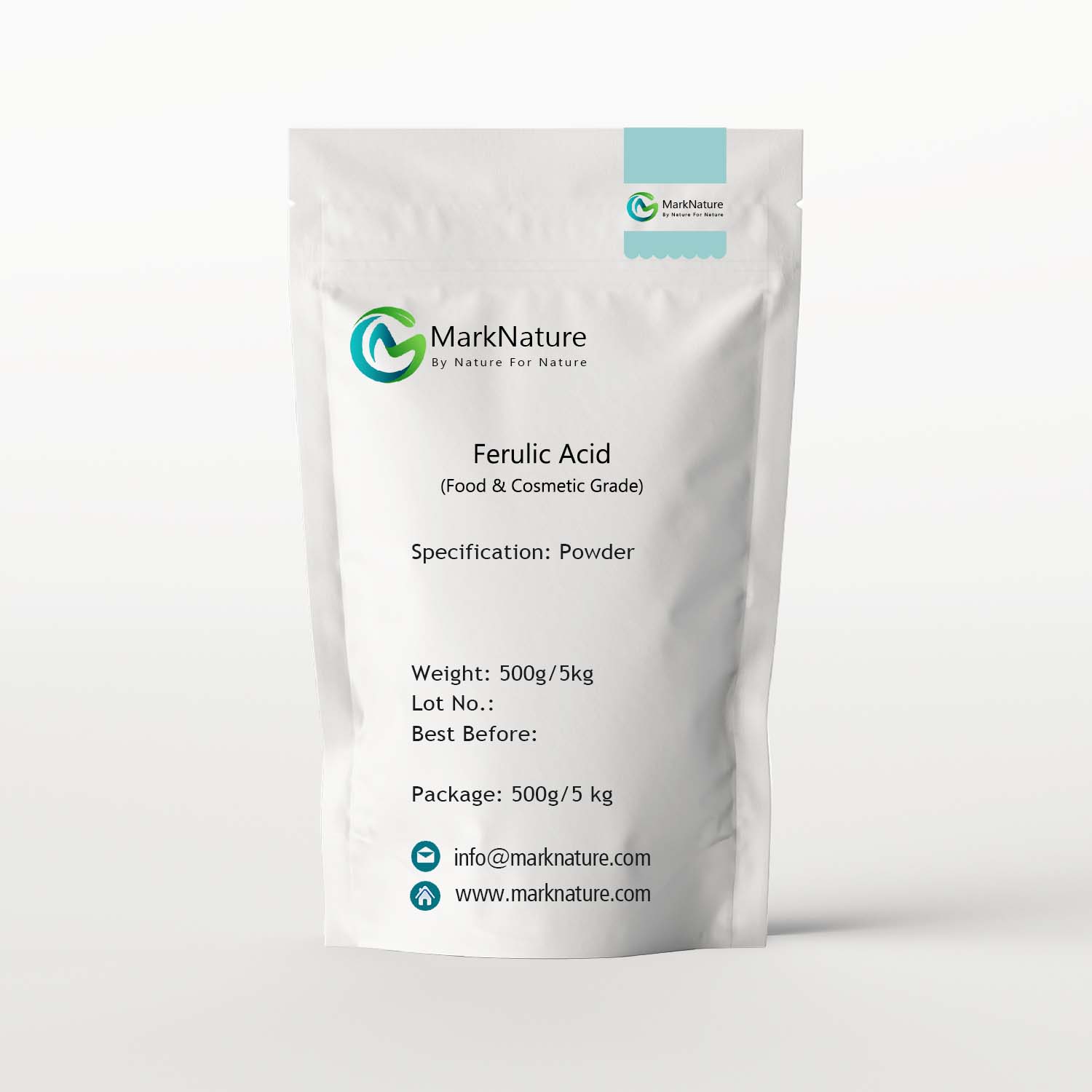Description
Ferulic Acid is a naturally occurring phenolic compound abundantly found in plant cell walls, especially in grains such as rice, wheat, and oats, as well as in fruits and vegetables like apples, oranges, and tomatoes. It is also recognized as one of the key bioactive components in the traditional Chinese medicinal herb Ferula. As both a food-grade and cosmetic-grade ingredient, Ferulic Acid is highly valued for its broad spectrum of health-promoting properties—particularly its potent antioxidant, anti-inflammatory, and photoprotective capabilities. These attributes have made it a staple in skincare, nutritional supplements, and functional foods.
Renowned for its ability to neutralize free radicals and enhance the stability of other antioxidants like vitamins C and E, Ferulic Acid is widely used in anti-aging formulations. It also supports cardiovascular health by improving endothelial function and regulating blood lipids, while offering potential benefits in blood glucose management. In cosmetics, it contributes to UV protection, reduces melanin production, and promotes collagen synthesis, making it an ideal component in whitening, anti-photoaging, and wound healing products. Its neuroprotective potential is also under active research, showing promise in mitigating the progression of neurodegenerative diseases.
Molecular Formula: C10H10O4
Molecular Weight: 194.18 g/mol
CAS No: 1135-24-6
EC No: 214-490-0
Specification:
Appearance: White to pale yellow powder
Assay: 98.0% min.
Loss on drying: 0.5% max.
Residue on ignition: 0.2% max.
Heavy metals: 10 ppm max.
Arsenic: 2 ppm max.
Key Features:
1) High-Purity Food & Cosmetic Grade
2) Powerful Antioxidant: Neutralizes ROS; synergizes with vitamins C & E
3) Anti-Inflammatory: Inhibits cytokines such as TNF-α and IL-6
4) Skin Brightening & Photoprotection: Inhibits melanin and UV-induced damage
5) Supports Cardiovascular & Metabolic Health: Regulates blood lipids and glucose
6) Neuroprotective Potential: May aid in slowing neurodegeneration
Applications:
1) Skincare: Used in serums and creams for anti-aging, brightening, and UV protection (e.g., SkinCeuticals CE Ferulic)
2) Nutraceuticals: Formulated as antioxidant supplements, often combined with plant extracts such as oryzanol
3) Pharmaceuticals: Studied for anti-inflammatory, anti-cancer, and anti-diabetic effects

